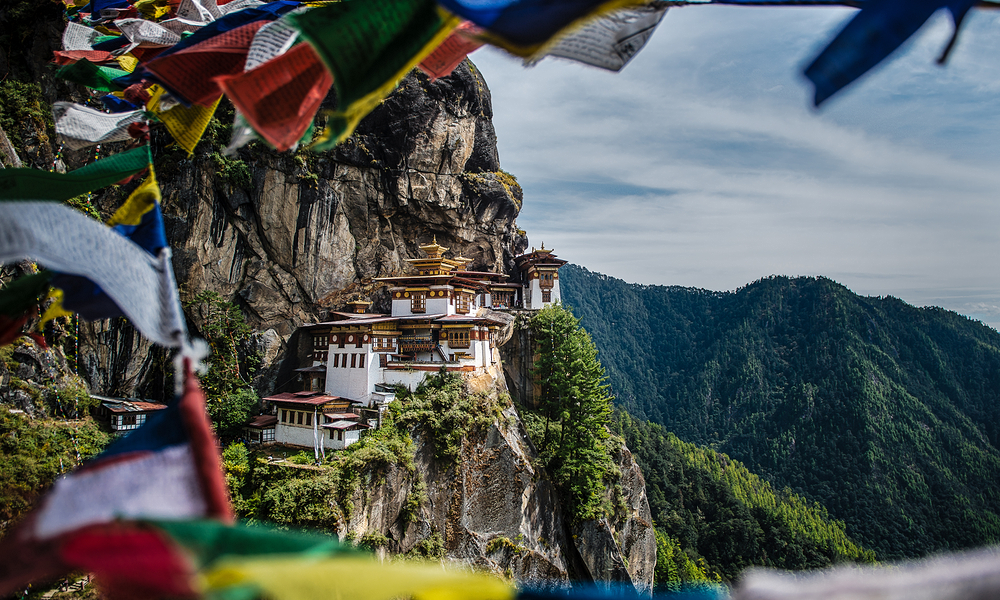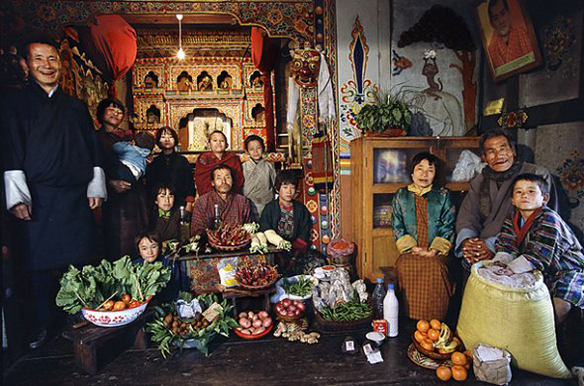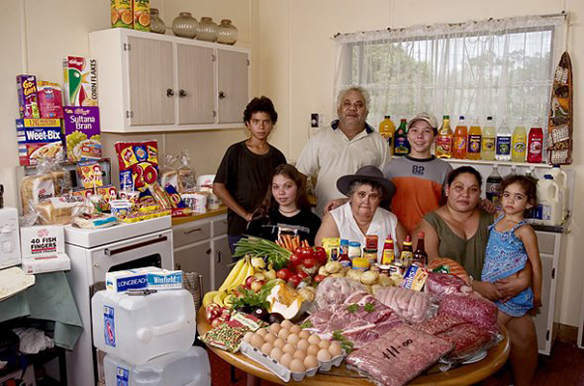Can you cut 1 Tonne of carbon pollution out of your life?
Take the challengeWhen you consider the fact that if the whole world lived the way that we do in my country, Australia, we'd need more than five other planets to sustain us, it's truly amazing to be able to report on a good news story like this one…
Bhutan, a small nation sandwiched between India and China, is not just carbon neutral, but carbon negative. Meaning all of the carbon emissions they produce are not only offset, but they're also managing to generate and export so much renewable energy that the country's carbon emissions are now in the negative.
It's a catchy sound bite to say that Bhutan is carbon negative, but I want to take a moment to recognise what an extraordinary feat that is.
There is no other country on our entire world that has managed to do this.

You might have heard of Bhutan before.
They're the country that decided they wouldn't measure the success of the nation on the Gross Domestic Product (GDP), opting instead for their own metric; the Gross National Happiness (GNH). They offer free education and health care to all citizens, and their much loved king famously imposed democracy on his people. Not a bad place to live. Also, it looks like this:

Read more: Bhutan plants 108,000 trees to celebrate birth of new prince
When speaking about the country's revolutionary way of considering growth, Bhutan's current Prime Minister, Tshering Tobgay says:
“Economic growth is important, but that economic growth must not come from undermining our unique culture or pristine environment."- .
This is a truly beautiful vision for the country, and it exists in stark juxtaposition to the environmental policy we have in Australia. Our previous Prime Minister, Tony Abbott, has been quoted as saying, "coal is good for humanity".
How did they do it?
The entire country generates only two point two million tonnes of carbon dioxide a year. In Australia, that number is somewhere around five hundred forty-two million, thirty-one thousand, two hundred five, and that's not even taking into account the 300 million or so tonnes of coal and it's embedded emissions that we export.
There is an enormous difference in population size between Australia and Bhutan, so placing these number side by side isn't a fair comparison, but take a look at these two photos of Bhutan and Australia from American photojournalist Peter Menzel that document the way that we consume around the world.


The Bhutanese clearly have an intrinsic relationship with the natural world. In fact, the constitution in Bhutan demands that a minimum of 60% of the country's total land shall remain under forest cover for all time.
Currently, 72% of Bhutan is under forest cover. Because of this, six million tonnes of CO2 emissions are sequestered by their bushland each year. Putting them 4 million tonnes of CO2 emissions in the negative.
But there's more.
Bhutan generates huge amounts of renewable hydro energy, which brings their negative CO2 total to six million tonnes a year, with the goal of getting this to 17 million by 2020, and eventually 50 million. That's more than the entire emissions for NYC in a year.
Small nations pay a big price.
The sad side to this story is that the Bhutanese, like many other low emitting populations, and now paying the price for our inaction on the climate crisis.
Glaciers in Bhutan are melting, some of which form beautiful lakes, the others cause devastating flash floods and wreak havoc in the surrounding areas. This doesn't seem like a fair turn of events.
What can you do?
Profound lifestyle change is a key part of the solution to fighting the climate crisis.
We live in a culture of convenience, and challenging our learned behaviours is uncomfortable. It means looking at our lifestyles and truly questioning our values, what we eat, what we wear, and how we navigate the world. There's not doubt that it's a big job, and doing it all at once might not be what works for you (or maybe it is). But here are a few ways in which you can start:
Say not to single-use. This is a no brainer and one that you can start right away. Take a reusable cup for your coffee, ditch the plastic bags, and make a commitment to stop buying bottled water.
Look at your diet. This is a tough one for lot's of us (I know it was for me) because eating meat is well and truly ingrained into the Western diet. But when it comes to climate change and what's on your plate, the overall message is clear. We need to eat a lot less meat, at least 50% less.
This is a great read for anyone looking to be a responsible omnivore, and this is a fantastic starting point for anyone that loves meat but wants to cut down.
Think about what you really need. Our economic system relies on the fact that we love to consume. So much so that many of the products we buy are designed to fail. There's no doubt that buying things makes us feel better, it gives you an instant endorphin rush, but luckily so do these 10 things.
If you'd like to learn more about Bhutan you can watch Prime Minister Tobgay's TED talk below.
Bhutan images: Shutterstock
Read this next: This country shut down the army and prioritised the environment instead.

